Out of the Shadows
27/02/16 19:03
Patrick Carnes, Out of the Shadows: Understanding Sexual Addiction, (Center City, MN: Hazelden Publishing), 3rd Edition, 2001.
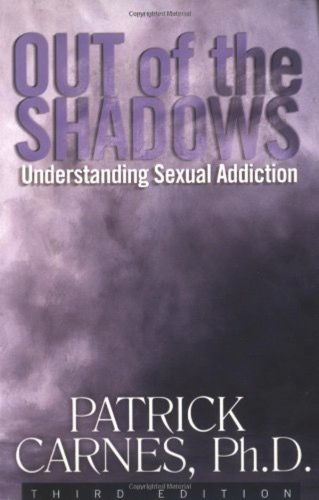
This book has received a lot of acclaim in its role of helping addicts, their families, and those who care for them better understand both sexual addiction and its treatment. The book leans heavily on the 12-step process. Of course the adaptation of a program designed to treat alcoholism doesn't make an easy transition into the world of sexual addiction. The issues are different and complex. Unlike alcohol addiction which is often treated by total abstinence, successful treatment of sexual addiction is about abstaining from certain sexual practices while continuing to function as a sexual being.
I still have a long ways to go in my understanding of the nature of sexual addiction, but this book was helpful to me as I continue to learn and grow and provide care for others.
Trouble I've Seen
27/02/16 18:48
Drew G. I. Hart, Trouble I've Seen: Changing the Way the Church views Racism, (Harrisonburg, VA: Herald Press), 2016.
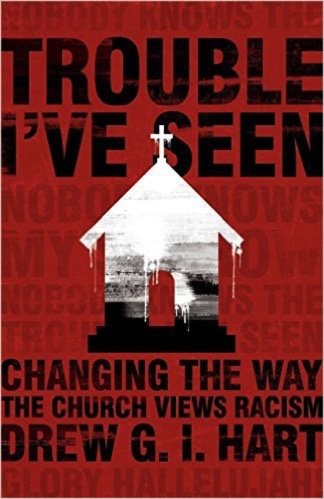
I found the book to be challenging. I, too, have fallen into somewhat simplistic notions of racism without confronting how deeply it is imbedded in my way of thinking and the ways in which I lead my congregation. I discovered this book on the recommendation of a colleague and we've been using it to discuss the issue of racism in our clergy meetings. That, it seems to me, is a good use of the book and the ideas of the author.
Like many other books, this one is strong on assessment of the problem and a little short on practical solutions. When it comes to racism, however, awareness is critical and the book would serve an important function even if it were to offer no practical solutions. As it is, there is much to learn and a few practical next steps that come from the book.
Traveler's guide to Alaskan Camping
27/02/16 18:35
Mike and Terri Church, Traveler's Guide to Alaskan Camping: Alaska and Yukon Camping with RV or Tent, (Livingston, TX: Rolling Homes Press), 2011.
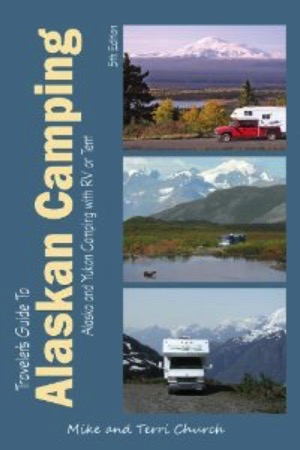
It's obvious that the authors are experienced RV travelers and they make note of important things such as where to dump holding tanks, where to obtain fresh water, propane and other items. There are comparison charts to provide information about the cost of fuel and information on where to obtain groceries. If we ever get around to taking the trip, this book is certainly one to take with us.
In the meantime, it is a fun book to turn to for daydreaming and planning.
Blessed are the Crazy
09/02/16 20:32
Sarah Griffith Lund, Blessed are the Crazy: Breaking the Silence about Mental Illness, Family & Church, (St. Louis: Chalice Press), 2014.
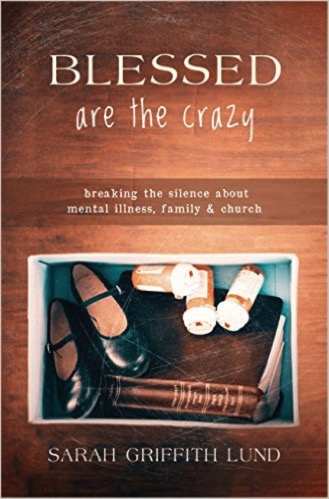
Perhaps the most important contribution of this book is the way in which it opens the door to increased conversation about mental illness in the church. It seems that each opportunity to speak gives new voices a chance to join in the conversation and to discover that those who are struggling with mental illness in their families are not alone - they are surrounded by others who wrestle with similar problems.
This book will be an excellent discussion starter for church groups wanting to explore ways in which congregations can be more supportive of their members and families.
The Rise and Fall of the Bible
09/02/16 19:31
Timothy Beal, The Rise and Fall of the Bible:The Unexpected History of an Accidental Book, (New York: Houghton Mifflin Harcourt), 2011.
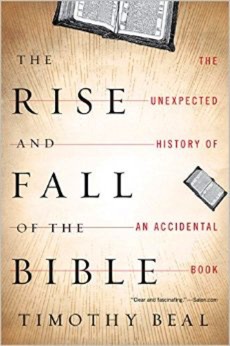
I am sure that congregations that are more fundamentalist in their approach than ours are an excellent entry point into Christian thinking for many faithful people. and I know I shouldn't complain about their spiritual journeys, but it does seem as if there are a lot of books published today by authors who haven't done much of a search of the existing literature before coming up with their book.
That's enough complaining. The book provided material for several interesting discussions in our clergy book club and I'm sure it would be fun to discuss in a variety of different settings. It is a scholarly undertaking with a competent bibliography and makes a strong case for a more careful reading of the Bible than some have given it. It also contains a useful summary of the history of interpretation that helps people to see the particular interpretations they have experienced in the context of others who have held similar interpretations.
All in all, it is a good read and will be, I believe, useful for discussion groups and others who are invested in taking a closer look at the Bible.
Pure Act
08/02/16 20:40
Michael N. McGregor, Pure Act: The Uncommon Life of Robert Lax, (New York: Fordham University Press), 2015.

The biography is a pleasure to read in part because Lax is such a fascinating character. It affords plenty of opportunities to think philosophically and consider the deeper meanings of life and art and faith. Like Merton, Lax took the step of converting to the Roman Catholic faith. Unlike Merton, Lax never formally joined a monastery, preferring instead to chart his own journey of simple living. The result was a life lived honestly without excessive consumption.
This is a biography to which I will return for inspiration. Furthermore, it is a book that has started me down the road of a new literary journey. Before I even finished the book I ordered a copy of Lax's "33 Poems" as a way to get to know him and his art better.
Neither Wolf Nor Dog
08/02/16 20:18
Kent Nerborn, Neither Wolf nor Dog, (Novato, California: New World Library), 1994, 2nd Edition, 2002.
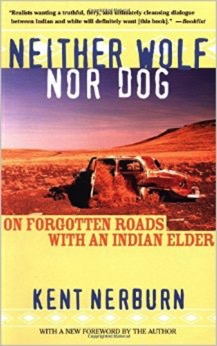
First of all, he is not forthcoming with the simple fact that the book is a novel. He presents his characters (and he is the main character of the book) as if he were writing a memoir of his own experiences. His main character (himself) is portrayed as a writer with a tape recorder, taking down the quotes of two native elders. One might assume that the elders are Lakota, given his rough (and often inaccurate) descriptions of location, but this is not clear.
What is clear is that Nerburn believes in generic Indians - those who transcend tribal distinctions and are able to speak for all indigenous people. Only he doesn't trust them to speak for themselves, so he puts his own words into their mouths.
He is aware of how many times this has occurred in the past and is a bit defensive about it, referring to Dances with Wolves as a movie made by whites about Indians. Then he proceeds to do exactly the same thing. He writes a book about Indians. The problem is that they aren't real Indians. They are figments of Newborn's imagination.
Fiction and storytelling are great art forms, but they require more honesty than Nerburn manages in this book. I will concede that he does succeed in conveying some aspects of contemporary reservation life, but the story is, at best incomplete.
Worse yet, it is not and never has been Nerburn's story to tell.
Don't waste your money on this book. I'll gladly give you my copy.
The Submission
08/02/16 19:55
Amy Waldman, The Submission, (New York: Farrar, Straus and Giroux), 2011.
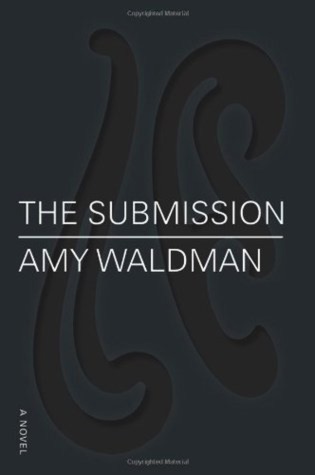
I guess I might say it is a good novel. It is not, however, a great novel. Somehow Waldman's characters don't become real enough for us. They are too stereotypical, too generic, too devoid of the unique quirks and individualities that make humans what we are. The story ends up being disappointing.
Maybe my gift wasn't as interesting as it might have been. That is the way it is with reviews. They simply aren't the same thing as reading the book.
American Sublime
08/02/16 19:43
Elizabeth Alexander, American Sublime, (St. Paul, MN: Graywolf Press), 2005.

With remarkable economy of words, Alexander tells our story in speaking words - words meant to be recited out loud.
I sense a bit of the preacher in her writing. The keen awareness of rhythm and pitch that makes African American preaching so compelling seems to come through her words. I'll be reading more of Alexander's poems in the years to come.
Moose
08/02/16 07:31
Michio Hoshino, Moose, (Hong Kong: Chronicle), 1988.
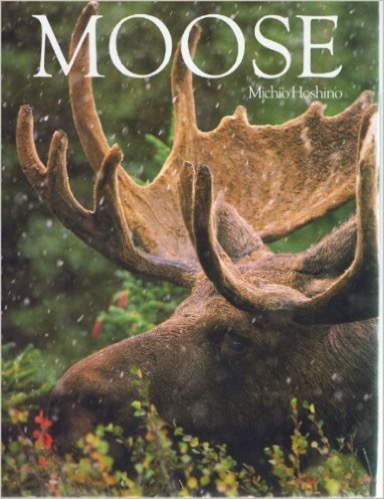
Like his books about bears, whales and caribou, Moose is a study in a magnificent animal that demonstrates Hoshino's dedication and commitment to taking the time to know his subject well. Of course his subject was more than just one particular species of mammal. In reality his subject is Alaska. And no other photographer whose work I know has done a better job of showing the immensity and allure of the land.
This is a book to which I will return again and again as I ponder a place far from home that I long to visit one day.
The Neverending Story
08/02/16 07:12
Michael Ende, The Neverending Story, translated by Ralph Mannheim, (London: Penguin), 1997.

In a sense we all write our own stories, or more accurately live the stories of our lives and the tale of Bastian Balthazar Bux's encounter with a strange book challenges the boundary between reality and fantasy. Of course one has to be able to suspend disbelief and allow the story to take over, but that is true of many fantasy tales.
I'm not sure that the story reveals any deep philosophical meanings, but it is a fun tale and a worthy read for a day of recreation.